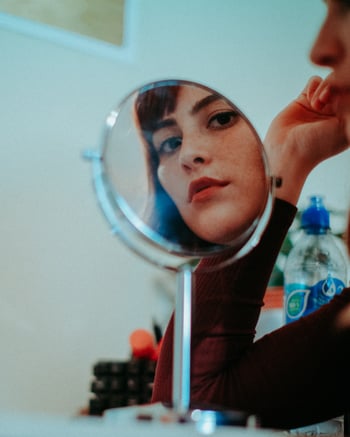 I never asked this question when I was getting sober, but I have heard other people ask it. I thought they were raising unreasonable objections to getting sober or expressing resistance to recovery. Over the years, patients at Hazelden and guests at The Retreat have spoken of their reluctance to recover by saying that they are afraid to recover, because they are afraid of who they might be if they stop drinking or drugging. What will happen, they ask, if they get sober and don’t like themselves, or don’t like who they have become?
I never asked this question when I was getting sober, but I have heard other people ask it. I thought they were raising unreasonable objections to getting sober or expressing resistance to recovery. Over the years, patients at Hazelden and guests at The Retreat have spoken of their reluctance to recover by saying that they are afraid to recover, because they are afraid of who they might be if they stop drinking or drugging. What will happen, they ask, if they get sober and don’t like themselves, or don’t like who they have become?
“We have shown how we got out from under. You say ‘Yes, I’m willing. But am I to be consigned to a life where I shall be stupid, boring and glum, like some righteous people I see? I know I must get along without liquor, but how can I? Have you a sufficient substitute?”
We get so used to being sick, that we cannot imagine being well. We may hate being miserable, but in time it is all we know. We don’t want to give up liquor or drugs because we cannot imagine something better. I thought those people were just being resistant. Then this summer, I finally understood.
Part of my alcoholic heritage is that my mother was a violent alcoholic, and my sisters and I were battered children. My mom broke my skull open when I was 5 years old and I have a traumatic brain injury. This gave me a migraine headache all day long for 64 years in a row. I got some relief the last nine years from an anti-seizure drug, but the headaches still persisted every day and were often severe.
Then, this past June, a new type of migraine drug was licensed. It is a monthly injection named Aimovig. It is a “calcitonin gene-related peptide inhibitor”. For many people, the results are one third fewer headaches, or milder headaches. Some people with chronic migraines had no headaches at all. I decided to try it, but I had to wait until it was manufactured and distributed.
Then I became worried: If it worked, who would I be without my headaches? I had become so used to just pushing forward in spite of the pain, who would I become if there was no pain to push against? Chronic pain was so much a part of my life, and my personality that I was suddenly concerned with the question of what would happen to me if it were gone. So much of my personal strength and character had been developed in opposition to the pain. If it went away, would I fall apart? Would I be confused? What would I do now? I imagined that my ability to withstand pain had been a source of my strength and character, and without it I might be somebody else, entirely.
I took the first injection with a mixture of hope and a careful sense of not hoping too much, lest I be disappointed. Right away, the first day, my headaches were reduced. In the second month, I had an afternoon with no headache at all. In the third month, I had a full day with no headache at all. In the fourth month I had seven days in a row with no headache at all.
It turns out, that I’m the same person, only happier and more relaxed. I am more myself than I ever was. I lose nothing on the days when I have no headaches, but I gain understanding of people who are afraid of recovery.
We can recover from alcoholism and addiction and be our true selves We can be happier and more relaxed, free from the tyranny of having to take a drink or a drug, more ourselves than we ever were.
John MacDougall is the Spiritual Care Coordinator at The Retreat. His book, “Being Sober and Becoming Happy” is available from Amazon.com





